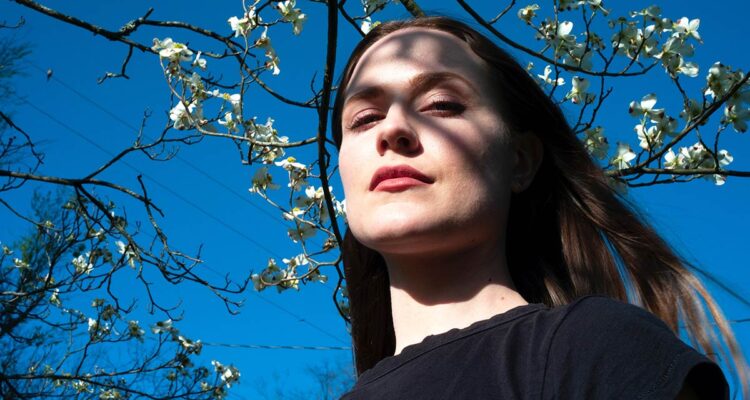It took Evan Rachel Wood years to muster the courage to name her abuser. A lot of people knew who he was, divorced from her, because of his job, his public persona, his notorious reputation — controversial, provocative, fundamentally harmful. Amy Berg’s “Phoenix Rising,” the documentary in which Wood, a well-respected actor and now activist, tells her story, was never about a sudden revelation or a twist in the tale about what happened to her — but the details, the calm with which she retells these events, is still impossibly harrowing. This is a film about the actions of Brian Warner, better known as Marilyn Manson, a man now accused by more than 12 women of mental, physical, and emotional abuse — but it is much more a film about Wood’s journey to break free from his prison and rise from the ashes of it.
READ MORE: Sundance 2022 Preview: 20 Must-See Movies From The Festival
The film goes back through Wood’s life to explain what made her the way she is today. It touches on her fraught childhood in a violent home, and the way her first few years as an actor branded her as Hollywood’s go-to for emotionally fucked up teenagers (Catherine Hardwicke’s “Thirteen” has a lot to answer for). And this is before she had even met Manson. Wood revisits all this with astonishing resolve as she talks to the camera, and her parents and brother comment on their memories of their loved one too.
Inevitably, things take a turn once Manson comes into the picture, but that’s from an aesthetic point of view as much as a narrative one. As Wood speaks of the way she processed certain incidents and has only come to be able to name that trauma with hindsight, once fully out of it, she gives the viewer something of an education on a glossary of terms of abuse. Love bombing, isolation, trafficking. It’s chilling to watch her come to terms with this in real-time, but there are also strange decisions when it comes to signposting these phenomena onscreen.
It feels at times like “Phoenix Rising” is leaning into Manson’s brand of dark fairytales (but make no mistake, his were always nightmares) and cult glorification, illustrating Wood’s words with literal storybook animations and definitions of traumatic experiences written out in pretty, cursive lettering as if the purpose is to entertain and erect a thought-provoking but fundamentally far removed piece of fiction.
The sense of unease continues somewhat as an ominous male voice reads some of Manson’s own words —crucial to understanding the evil workings of his mind, hateful rather than simply subversive as he’s been billed for so long — where the authorial narrative should have instead remained, unreservedly in this story, on the voices of the women who stayed silent because of him for so long.
A sense of sobering justice does then come back into focus as the film goes through the creation of the Phoenix Act, a survivor-led nonprofit organization working to end the cycle of domestic violence in which Wood teamed up with a number of other women to change the statute of limitations in the U.S. from three years to ten (frustratingly, as the bill was passed, it was then bumped back down to five — but progress is still progress). There is, of course, more work to be done and Wood knows this, but an HBO doc shedding light on just how backward the law had been for so long is certainly a small sign of progress in terms of awareness.
By the end of the first part of “Phoenix Rising” there is still a sense of unfinished business — not just because the second part of the film will be released on HBO in a few months time, but crucially there remains a huge looming question mark about just how much more it will take, beyond speaking out, after all the courage it took Wood to say his name and to change the law, for anything to actually happen. At the time of writing, no charges have been pressed against Marilyn Manson, against Brian Warner, despite an increasing number of women coming forward.
The day after the Sundance premiere of “Phoenix Rising,” Manson’s representatives released a statement disputing one of the most deeply upsetting parts of the documentary in which Wood recalls filming the music video for his song “Heart-Shaped Glasses” and being physically abused on set — she had been told they were going to film a simulated sex scene, but she says in the film that he actually penetrated her. He vehemently denies this.
There is no conclusion either tidy or empowering because the world just hasn’t allowed Wood either yet. The fight continues — the least we can do is turn up for it. [B+]
“Phoenix Rising: Part One: Don’t Fall” is the first chapter in a two-part documentary. With part one airing at Sundance, HBO will premiere part two later this year.
Follow along with all our coverage of the 2022 Sundance Film Festival.

